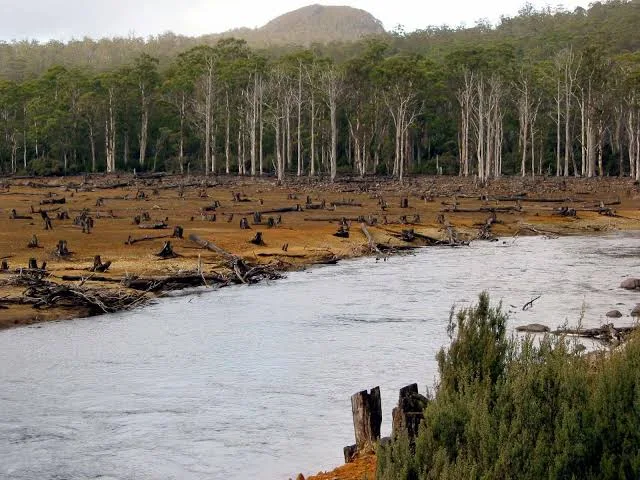Biodiversity and environmental conservation have become some of the most pressing global concerns today. The diversity of life on Earth, the interconnections between species, and the balance of natural ecosystems are crucial for human survival. However, increasing environmental interventions are disrupting this balance. Deforestation, pollution, climate change, and reckless consumption are leading to biodiversity loss and environmental degradation. Understanding the causes of these problems, recognizing their consequences, and finding possible solutions is critical.
One of the primary causes of biodiversity loss is deforestation and the destruction of natural habitats. Across the globe, particularly in ancient forests like the Amazon and Borneo, forests are being cleared for industrialization and large-scale agriculture. As a result, the natural habitats of species such as orangutans and jaguars are shrinking, putting them at risk of extinction.
Pollution is another major factor affecting biodiversity. Plastic waste, chemical pollutants, and toxic substances contaminate terrestrial and aquatic ecosystems. For example, plastic pollution in the Ganges River and microplastics in oceans are proving lethal to marine life. These pollutants disrupt respiratory functions in animals, hinder plant growth, and ultimately destabilize ecosystems.
Greenhouse gas emissions, particularly carbon dioxide (CO₂), are accelerating global warming. This is leading to the melting of glaciers, rising sea levels, and increased threats to low-lying regions like Bangladesh and the Maldives. Additionally, coral reefs, essential marine habitats, are experiencing widespread bleaching, endangering numerous marine species.
Human greed and excessive exploitation also contribute to biodiversity loss. Illegal poaching, overfishing, and unsustainable harvesting of forest resources are pushing many species toward extinction. For instance, the population of African elephants has declined by 90% over the last century, while tigers and rhinos are nearing critically low numbers.
The impact of biodiversity loss extends beyond the environment, affecting human health, economies, and societal structures. Ecosystems function as complex networks where each species plays a specific role. The extinction of a single species can disrupt the entire system.
For example, pollinators such as bees and butterflies play a crucial role in plant reproduction. A decline in their numbers can result in reduced crop yields, leading to potential food shortages. Furthermore, biodiversity is the foundation of medical research, as many modern medicines originate from natural sources. A decline in biodiversity could weaken humanity’s ability to combat new diseases.
Agriculture also faces significant risks due to biodiversity loss. The reliance on monoculture (cultivating a single crop species) increases vulnerability to pests, diseases, and climate change. A sudden outbreak could destroy entire crops, leading to severe food crises.
Air pollution has become a severe global issue. In major cities like Delhi, high pollution levels are linked to respiratory illnesses, heart diseases, and cancer. Similarly, water pollution caused by industrial waste has turned rivers and lakes toxic. Sacred rivers like the Ganges and Yamuna are no longer safe for drinking due to contamination.
Plastic pollution is another alarming problem. Every year, approximately 8 million tons of plastic waste enter the oceans. This waste is ingested by marine creatures like fish and turtles, causing widespread fatalities. The "Great Pacific Garbage Patch," a massive accumulation of plastic debris in the Pacific Ocean, serves as a stark reminder of human negligence.
Human intervention in nature has led to extreme climate changes, affecting both ecosystems and economic structures. Scientists and environmentalists have long warned that time is running out to restore balance. A study by Texas A&M University’s School of Public Health found that green spaces significantly reduce stress and mental health disorders. Research on 61.3 million mental health patients showed that those living in green surroundings had lower depression rates. Yet, human greed continues to threaten these vital ecosystems.
Over the past two decades, approximately 78 million hectares (193 million acres) of mountainous forests have been lost worldwide. Climate change-induced droughts, heatwaves, and wildfires are major contributors to this destruction. In 2050, nearly half of the Amazon rainforest is expected to disappear due to such factors.
Between 2013 and 2023, 95% of deforestation in India was linked to illegal logging and forest fires. According to a UK-based study, deforestation in India has increased significantly over the last 30 years. Between 2015 and 2020 alone, India lost 668,400 hectares of forests, the second-highest globally after Brazil. In the past three decades, a staggering 420 million hectares of forest cover have been lost worldwide due to natural and human-induced causes. Andhra Pradesh, Karnataka, Uttarakhand, Telangana, and Himachal Pradesh are among the worst-affected states in India, where deforestation due to wildfires remains a persistent threat.
At the COP-26 summit in Glasgow, 144 countries pledged to halt deforestation by 2030. If successfully implemented, this could save the world's forests and require an estimated $900 billion in investment. Currently, only $3 billion is spent annually on forest conservation. By 2030, global investments in biodiversity conservation are expected to reach $400 billion—20 times more than present levels. Despite conservation efforts, deforestation continues to escalate, endangering the planet’s biodiversity.Addressing biodiversity loss requires concerted efforts at both global and local levels. International agreements such as the Paris Agreement (2015) aim to reduce CO₂ emissions, while treaties like CITES (Convention on International Trade in Endangered Species) regulate the illegal wildlife trade. The United Nations' Sustainable Development Goals (SDGs) also emphasize biodiversity conservation.
At the local level, afforestation projects, habitat restoration, and the promotion of organic farming methods can help mitigate biodiversity loss. Additionally, individuals can contribute through simple actions like reducing plastic consumption, conserving water, opting for renewable energy sources like solar power, and making environmentally conscious choices.
The relationship between humans and nature is deeply interconnected. Protecting biodiversity and the environment is not just an ethical responsibility—it is essential for our survival. As the saying goes, "We cannot live without nature." Collective action, from global policies to individual efforts, is the key to ensuring a sustainable future. Even small actions can lead to significant changes. It is our duty to safeguard the planet for future generations.
---
*Journalist


Comments